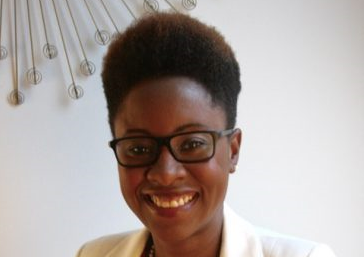Jessie Boye-Doe
Director, Center for Healing
“…90% of abusers are known to their victims.”
Jessie Boye-Doe came to JCCA almost a year ago to begin what she describes as her “dream job” as Director of JCCA’s Center for Healing, a program for JCCA’s children and families who have suffered child sexual abuse and/or exploitation. As January is Human Trafficking Month, Jessie has generously shared with us her fascinating insights on the issue of CSEC (Commercial Sexual Exploitation of Children).
JCCA: How did you get involved with CSEC?
Boye-Doe: It happened quite organically. I began my career as a Victim’s Advocate in the Kings County District Attorney’s Office in Brooklyn, and the more I worked with adults, the more I realized that things could only change if the trajectory of children’s lives changed. Abuse begins as a child or teenager and continues as an adult unless we can step in to change that.
JCCA: What’s the most important thing a parent can do to prevent sexual abuse?
Boye-Doe: Prevention is all about education. It’s critical to educate kids about their bodies, about what sex is, and the fact that their bodies are their own. Parents are often shy about discussing these topics, but it’s essential. Abusers often couch their abuse in games or power plays, or they use a child’s natural wish to be liked or praised. We have to teach children to think for themselves about what’s appropriate and also how to protect themselves.
JCCA: What does the public need to be aware of in recognizing sexual abuse and exploitation in children?
Boye-Doe: There can be several red flags: unexplained disappearances and returning home with gifts beyond their financial means—jewelry, iPods, etc.; the sudden appearance of tattoos; young girls dressing beyond their age and inappropriately; young people in the company of adults who seem to be coercing them. All these can be indicators of sexual exploitation.
JCCA: What’s the most common misconception about CSEC?
Boye-Doe: The biggest myth is that CSEC is primarily an international problem; that young people are being brought here from abroad on container ships. Of course, that happens, but abuse in our local communities, both in the suburbs and urban, is much more prevalent than people realize or want to admit.
The truth is that 90% of abusers are known to their victims. The idea of “stranger danger” has obscured the fact that most one-on-one abusers can be parents’ friends, family members, neighbors or teachers. Kids are socialized to be compliant to adults and this is where education becomes so important: to teach children that if anyone touches you inappropriately, it’s wrong.
JCCA: How do you think you’ve changed as a result of the work?
Boye-Doe: I think I’m more attuned to human behavior and how the work we do affects people. These are uncomfortable topics and we have to find ways to talk about them and ensure that parents understand how important it is to educate their kids about these issues.
JCCA: Is there some aspect of your work with a child that’s been particularly gratifying?
Boye-Doe: Much of our success comes in moments. For example, we were working with a young boy who had been abused over a long period of time and just couldn’t understand the idea that his body is his own. And then, one day, after a lot of time and work with him, he finally realized that he could say “no.” That was wonderful.
With children like this, helping them learn that they are allowed to determine what is done to them is key. You do this by pointing out everyday examples of situations in which they assert physical and emotional boundaries, and then encourage them to expand that to sex as well. Recognizing that he is in charge of his own body has significantly increased this boy’s self-esteem and also given him the power to say “no” in other situations where he had previously felt he couldn’t. I believe that the implications for his future are tremendous, whether it’s about appropriately asserting himself to an abusive boss, or turning away from his earlier life because now he has a greater sense of self-worth.
